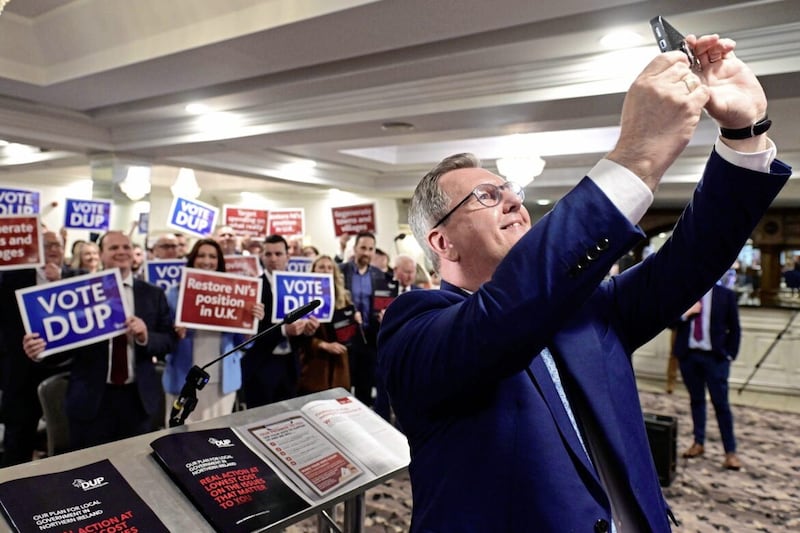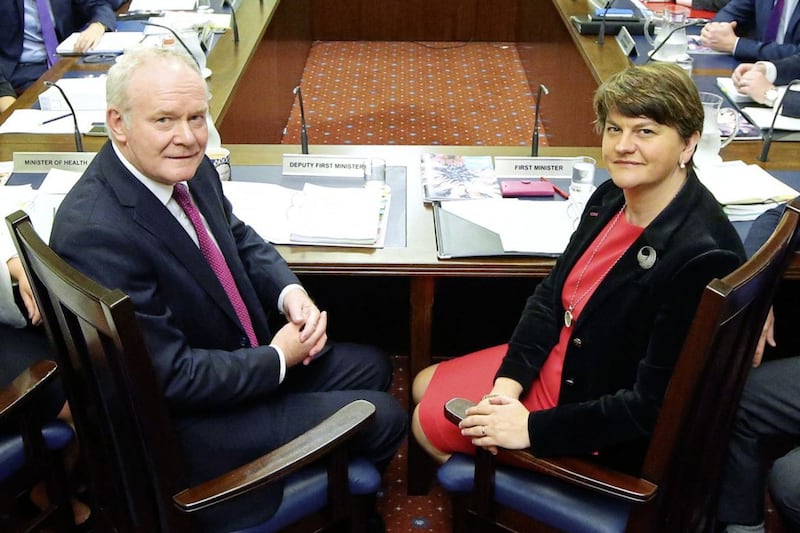There is something suspiciously artificial about Stormont’s budgetary crisis.
The pressures on spending are real, as are the executive’s failures to reform public services and take other difficult decisions. But the actual cut to the budget is a manufactured problem.
During last year’s caretaker executive period, financial discipline broke down and ministers forced through overspending of £650 million.
Secretary of state Chris Heaton-Harris has managed to cover about half of this with extra funds that came his way during the last financial year. But he has chopped the remainder off the budget for this year, leading to an unprecedented 6.4 per cent real-terms cut. Next year’s budget will rise again by 1.9 per cent.
This “dramatic V-shaped profile”, as the Independent Fiscal Council has described it, is strictly required by Treasury rules. It is harder to avoid while Heaton-Harris is passing emergency budgets one year at a time, in the absence of devolution.
Normally, there are various mechanisms that would let an overspend be smoothed out or carried over via multi-year budgets. Or the Treasury could just be asked to make an exception - its rules are hardly the laws of the universe. The secretary of state is pretending he dare not do any of this in case the SDLP accuses him of “British-only direct rule”. Heaven forbid.
It is commonplace to note the NIO is using Stormont’s budget to pressurise the DUP back to work. That is only half the story. A problem this contrived should be cheap and easy to reverse, turning a punishment for the DUP into a reward. Powerful heads have been scratched wondering what the unionist party can be offered as a win, above and beyond the Windsor Framework. A financial package is the traditional answer, letting the DUP return to the executive in triumph, or at least with enough of a fig leaf to briefly spare its blushes.
Tellingly, the DUP has been trying to own the issue of a new funding settlement for Northern Ireland. At Westminster, MP Gavin Robinson has been pressing for an update of the Barnett formula, recognising that Northern Ireland needs more public spending per head than England because it has smaller economies of scale.
MLA Gordon Lyons, tipped as the next deputy first minister, has begun promoting the same message as part of the DUP’s council election campaign, although this is well above council remit.
Owning a solution to Stormont’s budget will be tricker for the DUP, now it is the second-largest party. However, it can take the post of finance minister - Sinn Fein seems more interested in the Department for the Economy as first pick. The DUP could then claim to be leading negotiations with the Treasury, enabling its finance minister to write a better budget. This would also allow the DUP to strike a combative post against London and claim to be ‘standing up for Northern Ireland’, instead of stretching the credulity of its supporters to the limit by pretending everything is wonderful and everyone is friends again the instant devolution is restored.

In reality, a Stormont finance minister can barely sign a cheque without permission from both main parties plus negotiation across the executive. But the DUP only needs its posture to be plausible for long enough to get back to work, after which events will move the agenda on.
The threat of budgetary meltdown should be compared to Heaton-Harris’s threat to call an assembly election, which he stuck to from his appointment last September until the midnight deadline on October 28, whereupon it turned into a pumpkin.
It should also be compared to the New Decade, New Approach deal arranged by his sainted predecessor Julian Smith. Stormont parties thought they were getting a £2 billion golden carriage only to discover it was cart more full of sticks than carrots. But it was too late - they were back at work already. Within days, Arlene Foster and Edwin Poots separately suggested it might be necessary to raise university tuition fees and introduce water charges. Might difficult decisions finally have been taken had the pandemic not intervened?
The DUP may feel it cannot get away with falling for another New Decade, New Approach-type financial package. It will want more this time around, making it less likely hard choices will have to be faced. Perhaps the real damage from this manufactured crisis is that it will go to waste and everyone will be back at their desks by the autumn, thinking they can carry on much as before.






